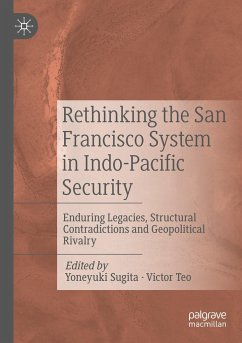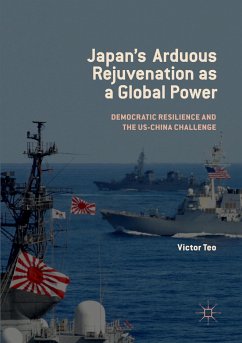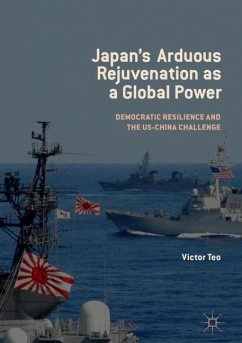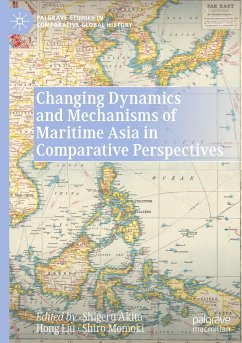
Cold War Redux Amidst Great Power Rivalry
China and the Rise of the Global Right

PAYBACK Punkte
46 °P sammeln!
This book provides an introspective assessment of the conditions that have led to the bifurcated world we live in today. Utilizing a traditional Waltzian three "images" analysis, the book examines the conditions that prompted the Quad countries (US, Japan, India and Australia) to securitize their relations with their important trading partner, China over the past decade (2012-2022). Against a backdrop of rapidly growing disparities and increasingly untenable political-economic conditions at home, the last decade witnessed the emergence of a populist-styled right-wing conservative movement on a...
This book provides an introspective assessment of the conditions that have led to the bifurcated world we live in today. Utilizing a traditional Waltzian three "images" analysis, the book examines the conditions that prompted the Quad countries (US, Japan, India and Australia) to securitize their relations with their important trading partner, China over the past decade (2012-2022). Against a backdrop of rapidly growing disparities and increasingly untenable political-economic conditions at home, the last decade witnessed the emergence of a populist-styled right-wing conservative movement on a global scale. China's rapid economic ascent, coupled with its asymmetrical influence with its trading partners, intensified anxieties as China closed the gap in capabilities with the United States, further exacerbating international insecurities. Paradoxically, this situation has arisen due to China's remarkable success in becoming a de facto (rather than de jure) member of the San Francisco system in the second half of the Cold War through a very successful adaptation of capitalist reforms. The adjustments brought about by the Quad countries are in reality realpolitik manoeuvres dressed in Cold War rhetoric in a collective effort to isolate China and diminish its influence within the San Francisco system and the wider region. Unless the Quad countries can recalibrate their relations and adapt to a significantly more influential China, the region's insecurities are likely to intensify as the conditions fueling nationalisms persist and globalization becomes increasingly bifurcated, leading to a possible collapse of the San Francisco system itself. This book takes a no-holds barred approach in challenging conventional wisdoms and policy-centric narratives, and puts forth a forwarding-looking argument that community building, development and peace should remain the dominant goals for all regional countries going forward.












